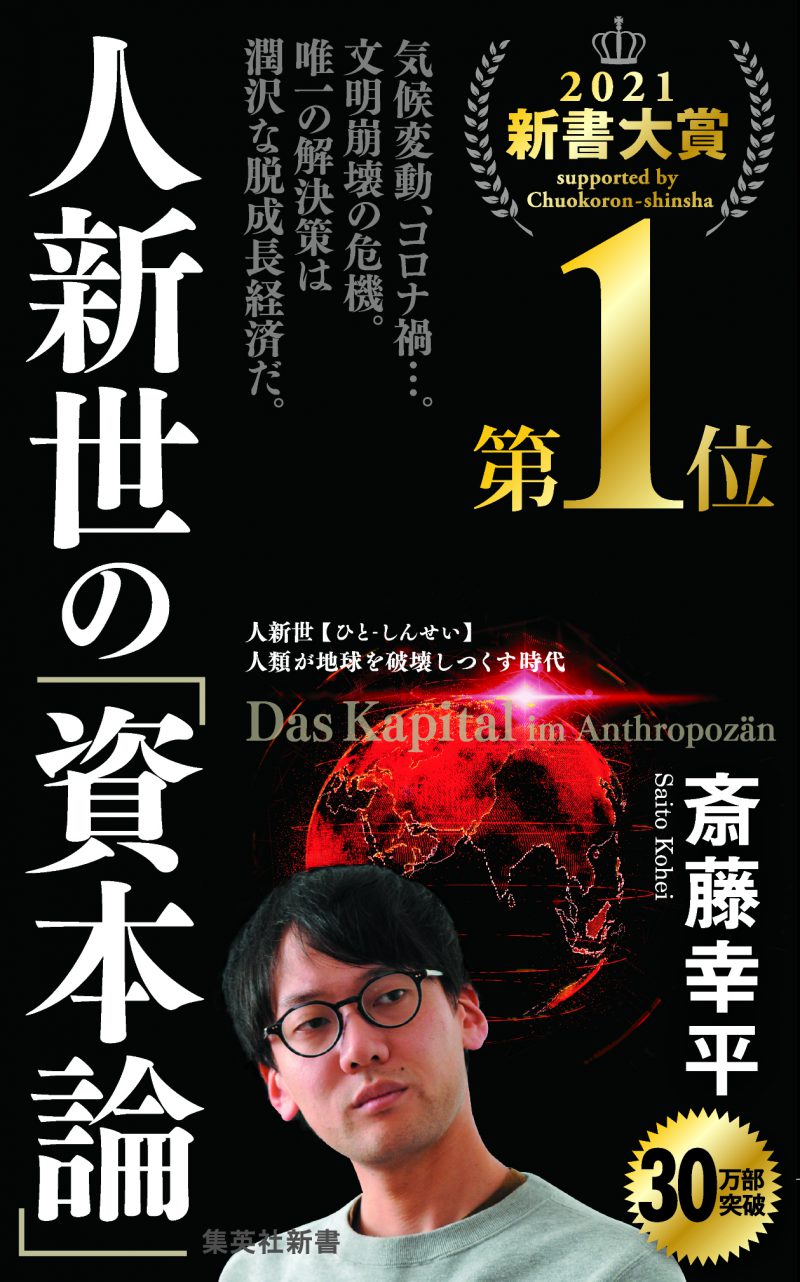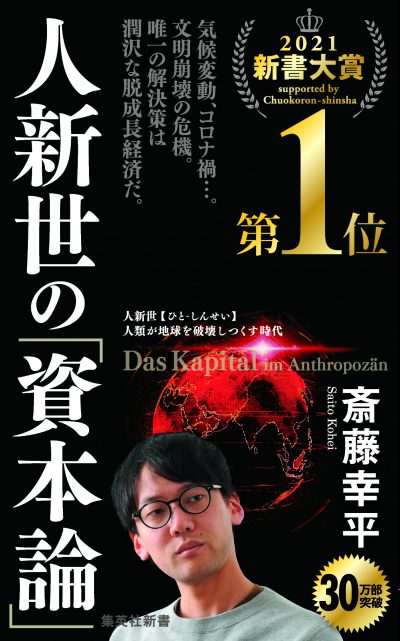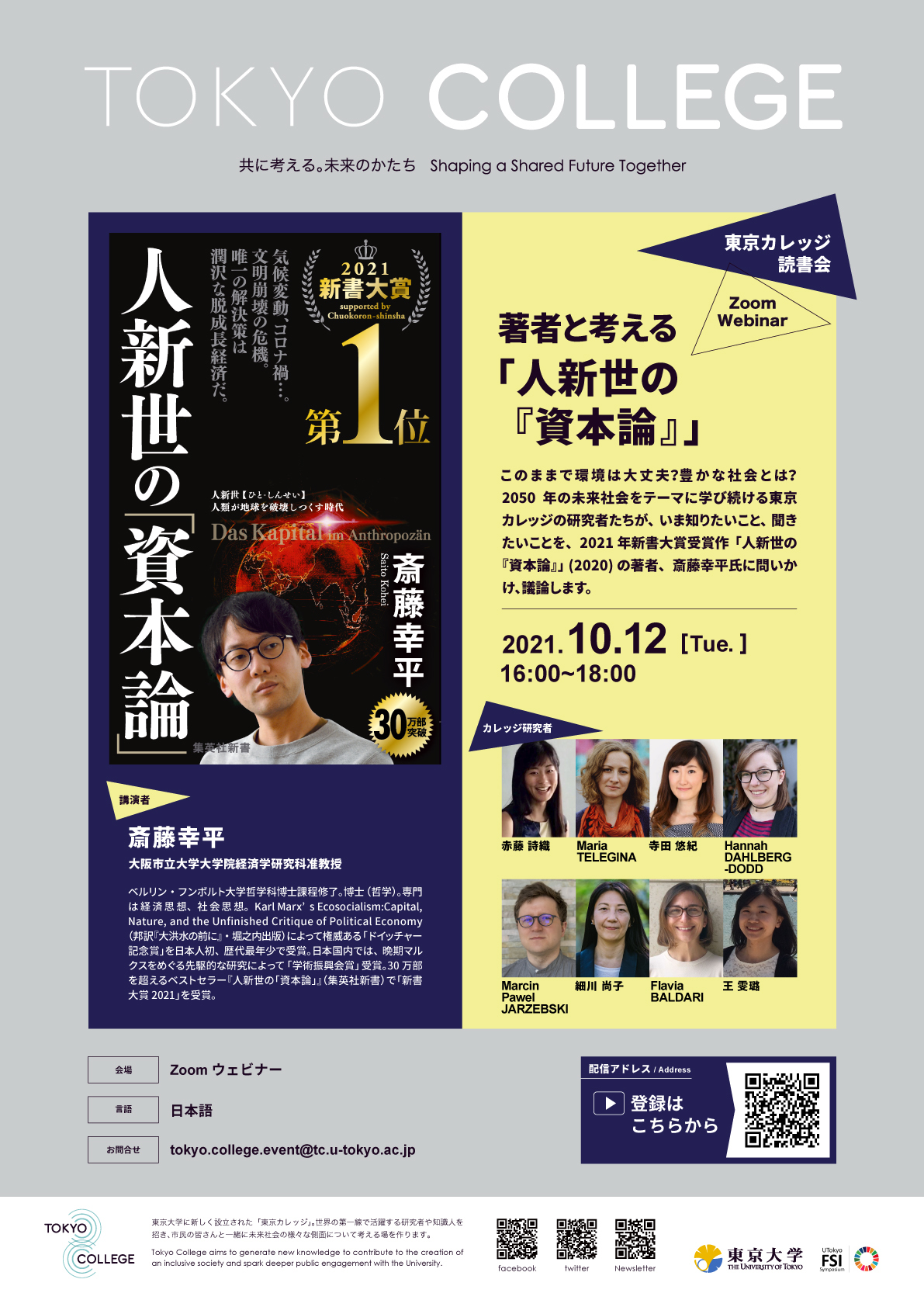In Conversation with the Author of “Das Kapital” in Anthropocene

| Date(s) | Tuesday, 12 October 2021, 4:00-6:00PM |
|---|---|
| Venue |
Zoom Webinar (Register Here) |
| Registration | Pre-regsitration required |
| Language | Japanese language only |
| Abstract |
What are the challenges facing the environment? One of the main research themes we pursue at Tokyo College is the “Earth and Society in 2050.” We invite everyone to join Tokyo College researchers to think through these questions and themes with SAITO Kohei, author of the best-selling book “Das Kapital” in Anthropocene (2020). |
| Speaker Profile |
Author: SAITO Kohei (Associate Professor, Graduate School of Economics, Osaka City University) Ph.D. recipient from Humboldt-Universität zu Berlin Department of Philosophy. He specializes in economic and social thought. Youngest and first Japanese recipient of the prestigious Deutscher Memorial Prize for his monograph Karl Marx’s Ecosocialism: Capital, Nature, and the Unfinished Critique of Political Economy. He was also awarded the Japan Society for the Promotion of Science Prize for his pioneering research on Marx’s later years. His best seller “Das Kapital” in Anthropocene (2020, Shueisha Shinsho) has sold over 300,000 copies and was awarded Chuokoron-Shinsha’s New Book Prize for 2021.
Tokyo College Researchers: SHAKUTO Shiori (Project Assistant Professor)
|
| Organized by | Tokyo College, The University of Tokyo |
| Contact | tokyo.college.event@tc.u-tokyo.ac.jp |
















